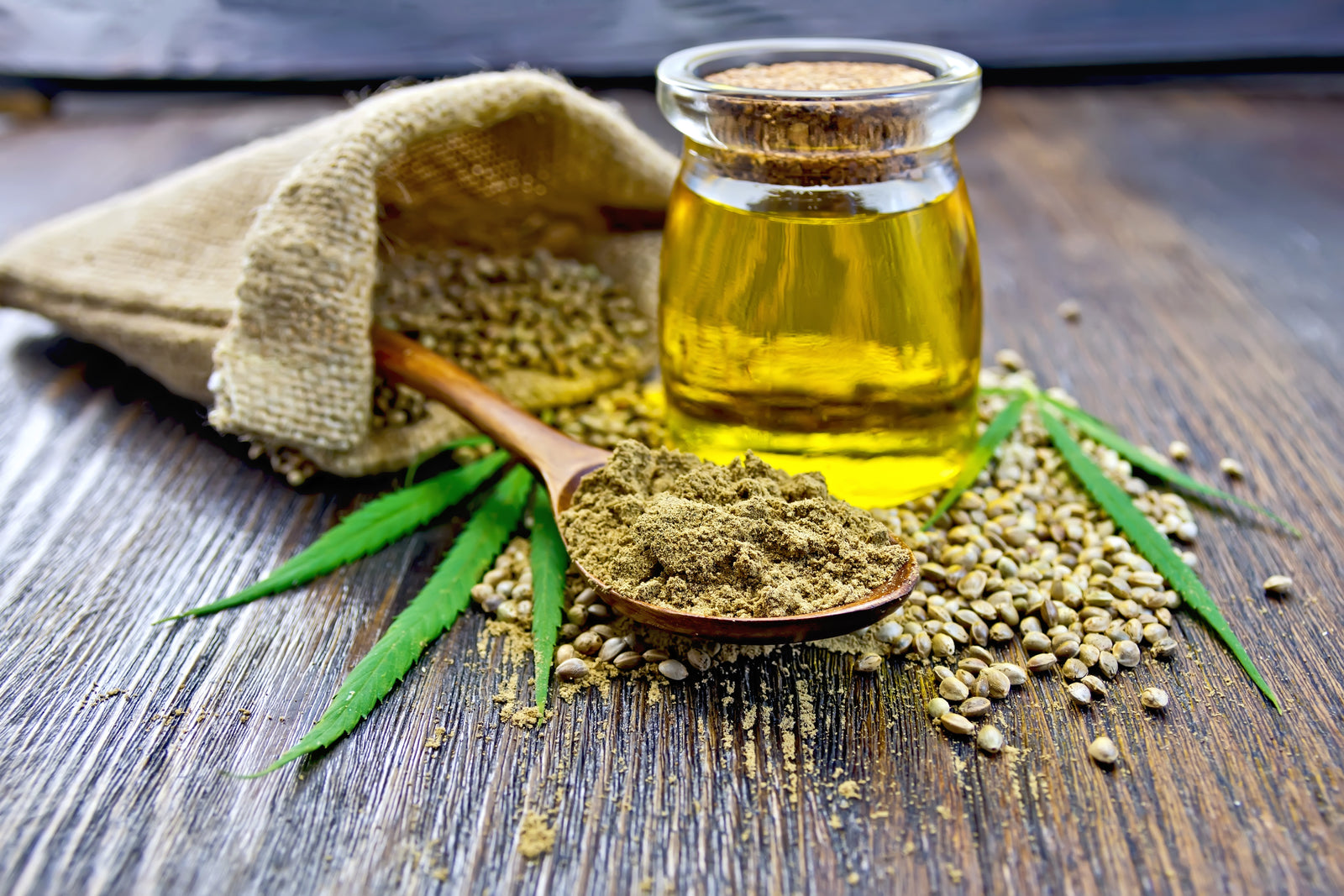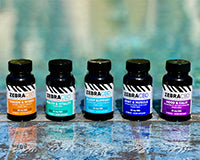
If you've been looking for natural ways to support restful sleep, fight stress or get pain relief from aches and discomforts, both CBD oil and hemp oil have likely popped up in your research. But have you ever wondered "is hemp oil the same as CBD oil? What is the difference between a hemp oil product and a CBD oil product?
Because they both come from the same source - the cannabis sativa plant - and have similar characteristics, people often assume that they're just different names for the same thing.
But that's not the case.
Like CBD, hemp oil is derived from the cannabis sativa plant ... how much CBD is in hemp oil? The answer is, it varies.
While they share some likeness, there are some significant differences between hemp oil and CBD oil. To that end, this guide will compare the oils then discuss their uses. Let’s do this.
What Is CBD Oil?
Cannabidiol (CBD) is one of a hundred chemical compounds known as cannabinoids found in the cannabis plant. CBD may be extracted from the stems, leaves and flowers of the cannabis plant and then combined with a carrier oil to make CBD oil. This non-psychotropic compound stimulates our endocannabinoid system (ECS), which is responsible for regulating a variety of your body’s functions, including: the digestive and nervous systems.
When CBD oil interacts with the ECS, it incites natural endocannabinoid production, creating various beneficial effects. However, since hemp-based CBD oil is non-psychotropic, it won’t get you high. That’s because CBD has low concentrations of tetrahydrocannabinol, or THC — the cannabinoid in the cannabis plant associated with the “marijuana high.”
The law stipulates that hemp-based CBD oil can be legally sold only if it contains less than 0.3%. This is an extremely small percentage of the psychoactive compound, especially when you compare it with the 25% to 30% THC present in most strains of marijuana plants.
Types of CBD Oil
There are three main types of CBD oil commonly sold. These include:
- Full-spectrum CBD oil – This type of oil contains all the compounds of the cannabis plant, including flavonoids, terpenes and low levels of THC. These create an “entourage effect,” which increases the impact on the ECS.
- Broad-spectrum CBD oil – This type of oil contains many of the essential compounds within the cannabis plant but has no detectable THC.
- CBD Isolate – This type of oil contains only one cannabinoid compound, CBD.
These terms aren’t legally regulated, so some disreputable companies may make unsubstantiated claims.
What Is Hemp Oil?
Like CBD, hemp products are derived from the cannabis plant. In which case, how much CBD is in hemp oil? The answer is, it varies.
Depending on what part of the hemp plant it’s extracted from, hemp oil may or may not contain CBD. Typically, when some people refer to hemp oil, they mean hemp seed oil. This hemp extract from the seeds of the hemp plant and contains little to no CBD. However, hemp seed oil is rich in other cannabinoids and nutrients, including:
- omega-3 fatty acid
- omega-6 fatty acid
- oleic acid
- linoleic acid
- protein
- vitamins A,C and E
- fiber
Omega fatty acids are among the most common reasons people take hemp seed oil, since they provide the ideal ratio necessary for a healthy diet. (Learn how to identify hemp plants in order to extract the best hemp seed oil!)
What's the Difference Between CBD Oil and Hemp Oil?
Although they share some properties and root ancestry, these oil CBD products are different. So next time you are trying to decide between hemp gummies vs. CBD gummies, keep in mind their unique properties The primary differences between hemp oil and CBD include:
- Production – Hemp oil and CBD are processed in different fashions. Hemp seed oil is typically created via a cold-pressing process, which yields a highly concentrated, sappy oil. On the other hand, CBD oil is made using processes like CO2 extraction, which extracts CBD from the entire cannabis plant and then mixes the extract with a carrier oil. As a result, CBD has a much richer nutrient profile.
- Legality – Hemp seed oil has been sold legally and regulated by the FDA for decades. It’s often used in facial cleansers and supplements. CBD has only recently become legal nationwide. And for it to be considered hemp product CBD it may not contain more than 0.3% THC. With that said, the CBD market is still largely unregulated, which can lead to unscrupulous CBD companies making claims that their products don’t support.
- Efficacy – Hemp seed oil is rich in vitamins, minerals and essential fatty acids, so it provides some nutritional benefits that bolster your baseline health. Yet, hemp seed doesn’t have the same beneficial properties, since it lacks CBD content. CBD, on the other hand, has demonstrated potential health benefits that far surpass hemp seed oil.
Benefits of CBD
Why would someone take CBD over hemp seed oil? The main reason is that all signs indicate that CBD provides a host of natural benefits to the user that hemp oil simply doesn’t offer. These benefits to wellness and vitality are multifaceted, extending to sleep, energy, physical discomfort and more.
1. Restful Sleep Support
Do you lay in bed, staring up at the ceiling vainly counting sheep? Between all of your stresses and concerns, a racing mind may keep you from getting the healthy sleep your body needs. And although you may have a million things to juggle, bedtime isn’t the best moment to concern yourself with
CBD ... has demonstrated potential health benefits that far surpass hemp seed oil.
A good night’s rest can help with your mood, energy levels, concentration and general outlook. And this is where CBD can assist: By taking a CBD product made specifically for better sleep an hour or so before bedtime, you can enjoy the calming effect of CBD combined with other natural sleepy ingredients like chamomile and melatonin. This is the recipe for a deeper, more relaxing slumber.
2. Relief of Aches and Discomfort
As we age, little aches and discomforts add up, and our bodies take longer to recover. An intense game of pickleball that once might have caused you to barely break a sweat may put you out of commission for a few days.
When you’re sore, it makes it hard to focus on the rest of your day, whether it’s crushing your work, exercise or personal goals.
Fortunately, you can take CBD orally or apply a topical to target the most direct pain relief possible to joints and muscles. So, to get the most out of your CBD routine, take a CBD chewable before strenuous activity. Once you’ve finished, you can hit problem spots with a CBD balm massage.
3. Stress Management
The 9 to 5 of the American grind is no cakewalk. Add the pressures of daily life and interpersonal relationships — not to mention an ongoing pandemic — and it’s no wonder why the average adult is stressed. Left untreated, all of these pressures can lead to burnout.
CBD can help you manage stress and stop it from negatively impacting your mental and physical health. A daily dose of CBD makes it easier to calm your mind and spirit. It won’t take away all of the stressors and triggers in daily life, but it will help you handle them in a positive manner.
By incorporating CBD into your mental health routine, you can ensure that you’re ready to face whatever the new day has in store.
4. Increased Energy
Are you tired of hitting the afternoon work wall where all you want to do is sleep? When your energy levels drop, so too does your productivity. It’s difficult to stay motivated and active when your eyes are drooping and your mind keeps slipping.
CBD is a natural way to provide an energy boost for your day, especially when combined with other ingredients formulated to help you keep energy levels up. Whether you need a morning wake-up or an afternoon pick-me-up, CBD can give you the energy you need.
5. Athletic Performance and Recovery
An often overlooked part of an athlete’s life is the importance of maintenance and recovery. Building toward goals takes repetition and daily strain. That can take its toll on your body, especially as you age.
One of the most common issues adults and athletes need to deal with is exercise-induced inflammation, which causes aches and soreness in the muscles and joints. When this flares up, it can be difficult to roll out of bed, let alone lace up your shoes for a long-distance run.
Using CBD before and after a hard workout can help combat exercise-induced inflammation, supercharging your recovery and ensuring that no day is wasted.
Why Have Hemp Oil When You Could Have Zebra CBD?
Hemp oil and CBD oil share some natural properties. They both come from the cannabis plant and can provide some natural health benefits.
While they may be plant cousins, their dissimilarities outweigh their shared heritage.
Put simply, CBD oil provides far more natural benefits than hemp oil. These benefits include, but are not limited to:
- sleep support
- discomfort relief
- stress management
- energy boost
- aiding athletic recovery
With that being said, there are more risks involved with CBD. Given that CBD is still an unregulated market, you have to be wary of CBD companies making bold claims about their products and not delivering on the quality promised.
That’s what we’re trying to fix. At Zebra CBD, we’re the only CBD company whose products are tested by not one but two independent, third-party labs and backed by a Label Accuracy Guarantee™, meaning our products are. We want our customers to know their CBD source from seed to bottle. Plain and simple.
So, if you’re looking for CBD oil for sale made with the verified, premium ingredients, then you’re in the right place. Welcome to Zebra CBD.
Source:
US News Wire. Poll Finds Americans Highly Stressed by Politics, Pandemic. https://www.usnews.com/news/health-news/articles/2021-02-02/poll-finds-americans-highly-stressed-by-politics-pandemic









